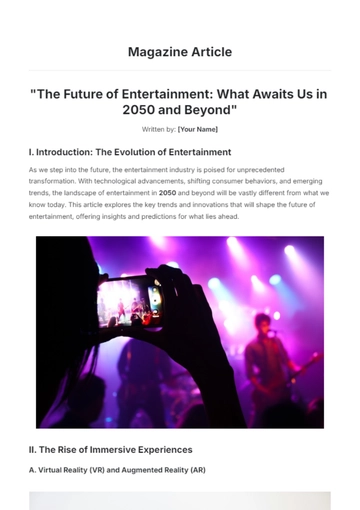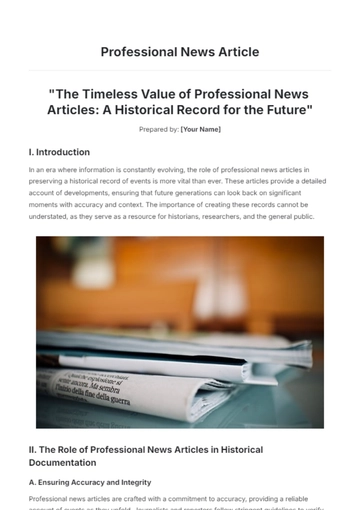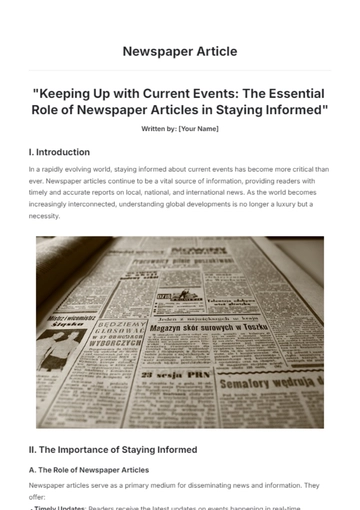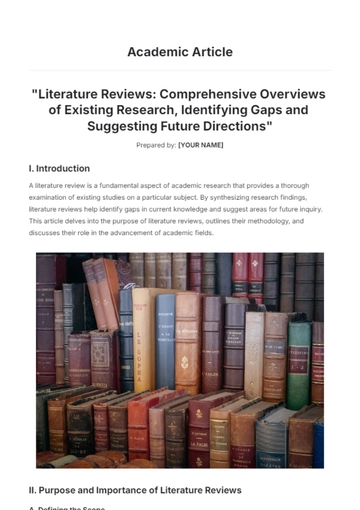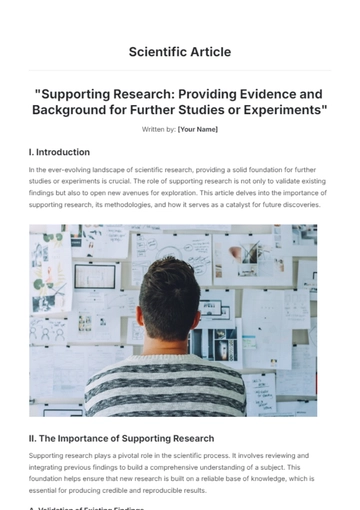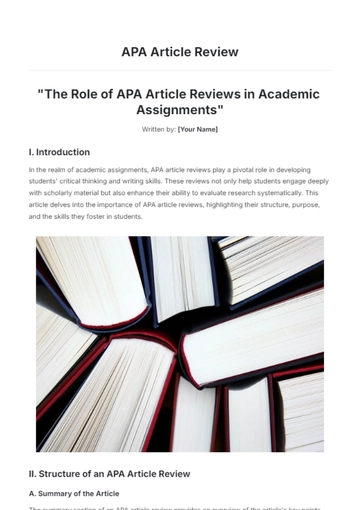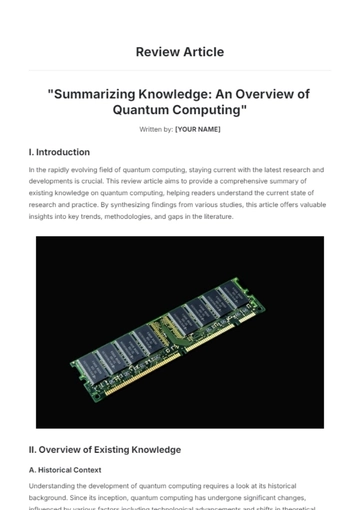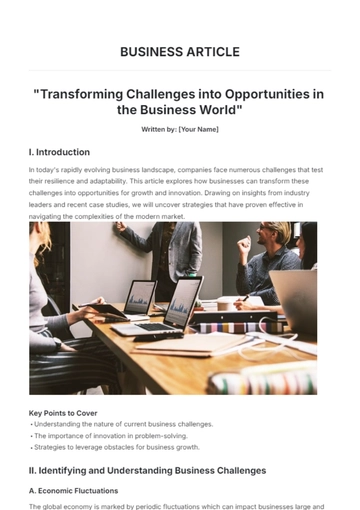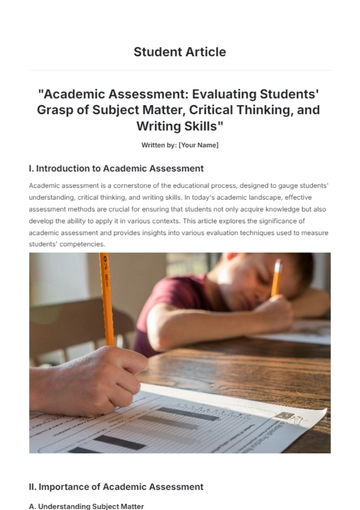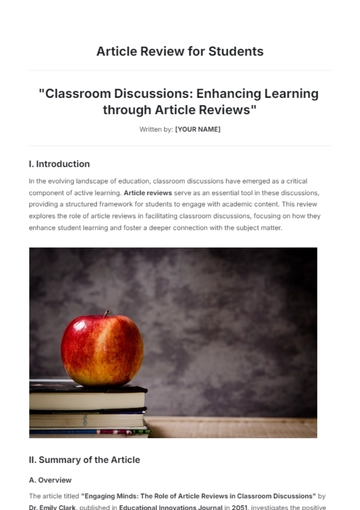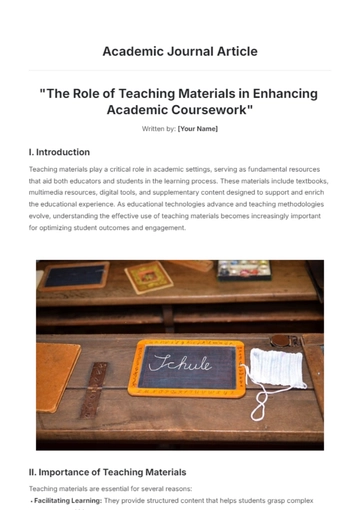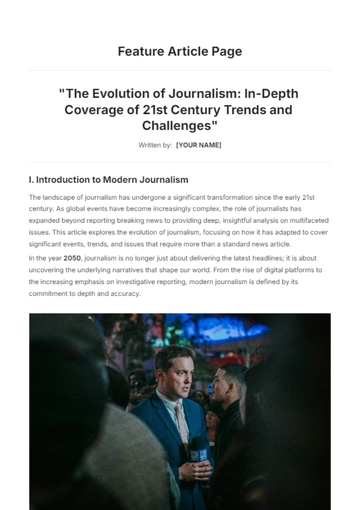Free Review Article
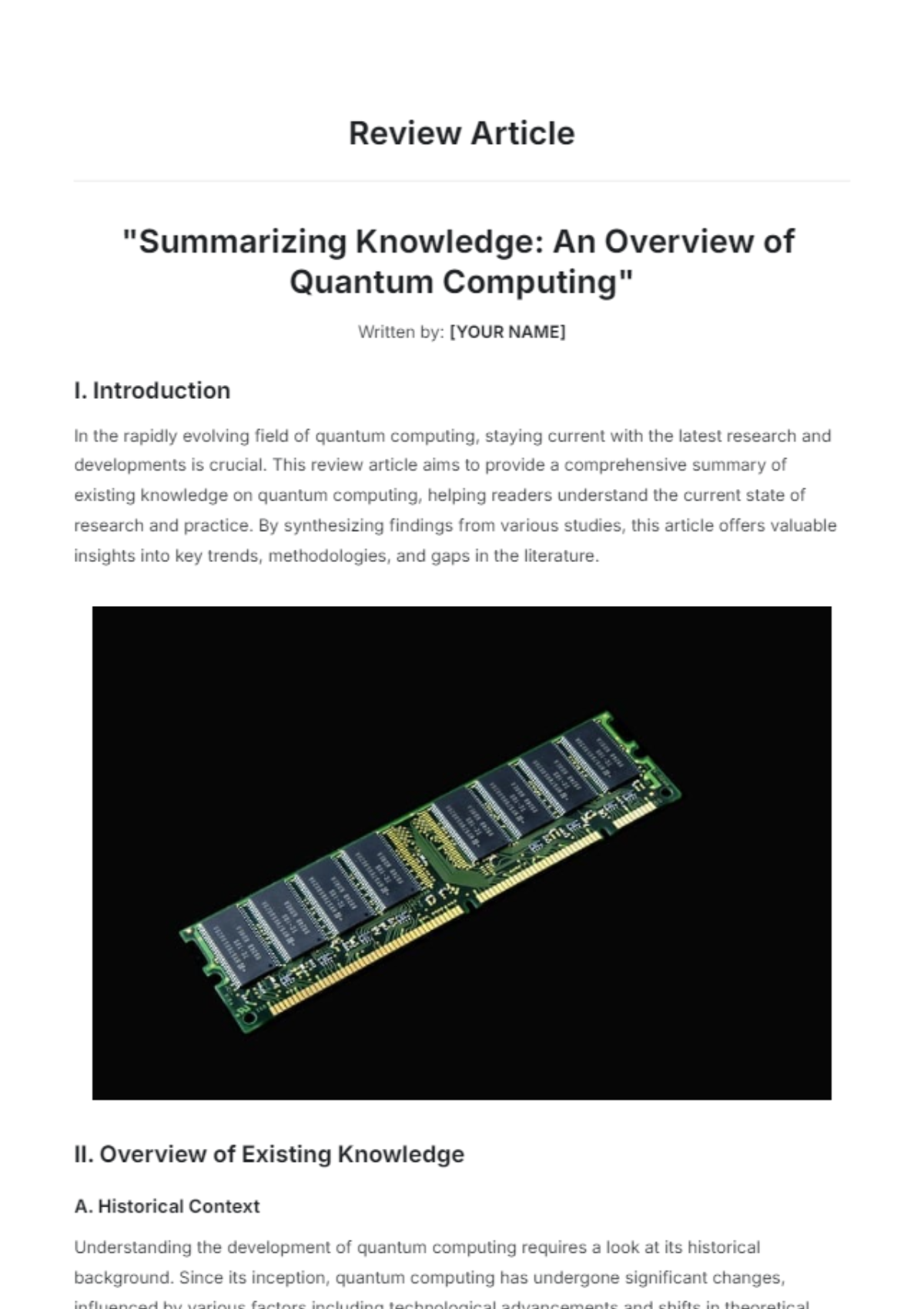
"Summarizing Knowledge: An Overview of Quantum Computing"
Written by: [YOUR NAME]
I. Introduction
In the rapidly evolving field of quantum computing, staying current with the latest research and developments is crucial. This review article aims to provide a comprehensive summary of existing knowledge on quantum computing, helping readers understand the current state of research and practice. By synthesizing findings from various studies, this article offers valuable insights into key trends, methodologies, and gaps in the literature.

II. Overview of Existing Knowledge
A. Historical Context
Understanding the development of quantum computing requires a look at its historical background. Since its inception, quantum computing has undergone significant changes, influenced by various factors including technological advancements and shifts in theoretical perspectives. Key milestones include:
Early Developments (1980s - 1990s): Theoretical foundations of quantum computing were laid by pioneers such as Richard Feynman and David Deutsch, who introduced concepts like quantum gates and algorithms.
Major Breakthroughs (2000s - 2010s): The development of the first quantum algorithms, such as Shor's algorithm for factoring large numbers and Grover's algorithm for search problems, marked significant progress in the field.
Recent Advances (2020 - Present): Companies like IBM, Google, and Microsoft have made strides in building functional quantum processors, with Google's 2019 claim of quantum supremacy being a notable achievement.
B. Key Findings and Trends
Current research on quantum computing highlights several critical findings:
Quantum Supremacy: Google’s 2019 experiment demonstrated that their 53-qubit quantum computer could perform a specific calculation faster than the most advanced classical supercomputers, showcasing the potential of quantum computing for solving complex problems.
Quantum Error Correction: Research has advanced methods for correcting errors in quantum computations, a crucial step towards practical and reliable quantum computers.
Quantum Algorithms: New algorithms, such as Variational Quantum Eigensolver (VQE) and Quantum Approximate Optimization Algorithm (QAOA), are being developed to tackle real-world problems in chemistry and optimization.

These findings underscore the evolution of quantum computing and its implications for various fields, including cryptography, material science, and artificial intelligence.
C. Methodologies and Approaches
Different methodologies have been employed in studying quantum computing. The primary approaches include:
Theoretical Models: Researchers develop mathematical models to understand quantum algorithms and computational complexity. Key contributions include the development of quantum circuit models and complexity classes like BQP (Bounded-error Quantum Polynomial time).
Experimental Techniques: Quantum computing research involves building and testing physical quantum processors using various technologies, such as superconducting qubits and trapped ions.
Simulations: Quantum simulations on classical computers help researchers understand and predict the behavior of quantum systems, providing insights that guide the development of quantum hardware and algorithms.
Each methodology has contributed to the understanding of quantum computing in unique ways, offering diverse perspectives on the subject.
III. Critical Analysis and Future Directions
A. Research Gaps and Challenges
Despite significant progress, several gaps remain in the research on quantum computing. Key areas needing further investigation include:
Scalability: Developing scalable quantum systems with a large number of qubits while maintaining coherence and minimizing error rates is a major challenge.
Practical Applications: Identifying and developing practical applications for quantum computing that offer clear advantages over classical methods remains an ongoing challenge.
Interdisciplinary Integration: Integrating quantum computing with other technologies, such as artificial intelligence and blockchain, to create innovative solutions requires further exploration.
Addressing these gaps is essential for advancing knowledge and improving practices related to quantum computing.
B. Emerging Trends and Innovations
Looking forward, several emerging trends and innovations are likely to shape the future of quantum computing:
Quantum Networking: The development of quantum networks could enable secure communication and distributed quantum computing, creating new opportunities for collaboration and information security.
Quantum Machine Learning: Combining quantum computing with machine learning techniques promises to enhance data processing capabilities and solve complex problems in novel ways.
Advancements in Quantum Hardware: Continued progress in quantum hardware, including the development of more stable qubits and better control systems, will be crucial for achieving practical quantum computing.
These developments offer exciting opportunities for further research and practical applications.
IV. Conclusion
In summary, this review article provides an overview of the current state of knowledge on quantum computing. By highlighting key findings, methodologies, and areas for future research, it aims to facilitate a deeper understanding of the subject and guide subsequent investigations.
V. References
Feynman, R., "Simulating Physics with Computers", International Journal of Theoretical Physics, Volume 21 (1982), Pages 467-488.
Shor, P., "Algorithms for Quantum Computation: Discrete Logarithms and Factoring", Proceedings of the 35th Annual Symposium on Foundations of Computer Science (1994), Pages 124-134.
Google AI Quantum, "Quantum Supremacy Using a Programmable Superconducting Processor", Nature, Volume 574 (2019), Pages 505-510.
This section includes a list of references used to compile the review article, ensuring proper credit to original researchers and sources.
VI. Appendices
A. Tables and Charts
Table 1: Key Findings in Quantum Computing | Description |
|---|---|
Quantum Supremacy | Google's quantum processor outperformed classical supercomputers in specific tasks. |
Quantum Error Correction | Advances in error correction methods improve the reliability of quantum computations. |
Quantum Algorithms | New algorithms offer solutions for complex problems in various domains. |
B. Supplementary Data
Additional data and supplementary materials related to the review are provided here, including detailed experimental results and theoretical models.
This review article offers a comprehensive synthesis of knowledge on quantum computing, serving as a valuable resource for researchers, practitioners, and policymakers.
- 100% Customizable, free editor
- Access 1 Million+ Templates, photo’s & graphics
- Download or share as a template
- Click and replace photos, graphics, text, backgrounds
- Resize, crop, AI write & more
- Access advanced editor
Elevate your content with the Review Article Template from Template.net. This fully editable and customizable template is designed to streamline your review writing process. Equipped with an AI Editable Tool, it ensures effortless modifications and personalized touches. Perfect for professionals seeking efficiency and flexibility in crafting compelling, well-structured review articles.









